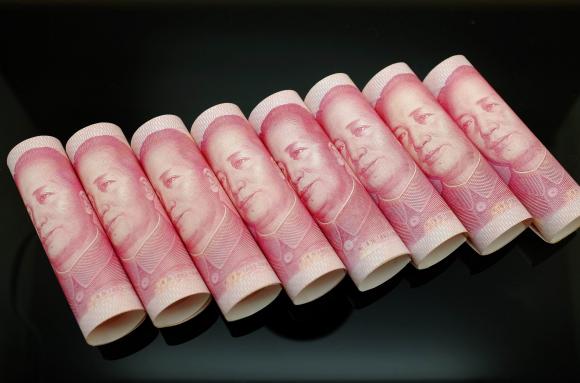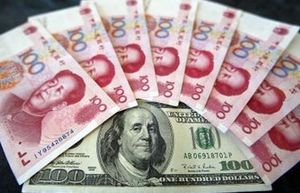US warns China over currency depreciation
Updated: 2014-04-08 14:57
(Agencies)
|
||||||||
 |
|
100 Yuan notes are seen in this illustration picture in Beijing November 5, 2013. [Photo/Agencies] |
The United States warned Beijing on Monday that the recent depreciation of the Chinese currency could raise "serious concerns" if it signaled a policy shift away from allowing market-determined exchange rates.
Washington has been pressing China for years to allow its currency to trade at stronger values. A weak yuan makes Chinese exports cheaper for US consumers at the expense of US producers. A weaker yuan also makes Chinese consumers less able to buy foreign goods.
Last month, US Treasury Secretary Jack Lew welcomed a decision by China to allow its currency to vary more against the dollar in daily trading.
Monday's comments by a senior official from the Treasury Department suggested the United States was not completely sold on China's intention to reduce authorities' interventions in exchange markets.
"If the recent currency weakness signals a change in China's policy away from allowing adjustment and moving toward a market-determined exchange rate, that would raise serious concerns," the official, who asked not to be named, told journalists in a phone call.
In comments that outlined US positions before meetings later this week of the International Monetary Fund and between Group of 20 nations, the official noted the widening of China's currency trading band came just after a drop in the yuan's value that coincided with reports of "considerable intervention" in exchange markets by Chinese authorities. That is exactly the sort of behavior Washington wants Beijing to ditch.
The United States also appears likely to pressure Europe at the meetings to act more decisively to fix its troubled banking sector.
The Treasury official said recent economic data from Europe showed the region was experiencing "chronic low inflation and weak demand." That appeared to be a nod to growing concerns that Europe's economy is so weak it risks falling into a dangerous spiral of falling prices and wages known as deflation.
"More needs to be done to support growth," the Treasury official said.
The official had blunt words for other economic powers as well, saying that Japan should avoid engaging in too much fiscal austerity.
He said US sanctions on Russian officials were already having an impact on Russia's economy. The official also chided emerging markets for going too slowly in adopting free-floating currencies.
"Resistance in many emerging markets to moving more quickly to market-determined exchange rate regimes is hindering the rebalancing needed to ensure a lasting, strong global recovery," the official said.
|
 Yuan eases on widened trading band |
|

 Vigil marks one month since MH370 vanished
Vigil marks one month since MH370 vanished
 The world in photos: March 31-April 6
The world in photos: March 31-April 6
 Simply child's play
Simply child's play
 Photo special: Weird buildings in China
Photo special: Weird buildings in China
 Jackie Chan holds charity concert marking 60th birthday
Jackie Chan holds charity concert marking 60th birthday
 Microsoft to end support for Windows XP
Microsoft to end support for Windows XP
 Poor weather greets baby prince
Poor weather greets baby prince
 22 miners trapped in Yunnan coal mine flood
22 miners trapped in Yunnan coal mine flood
Most Viewed
Editor's Picks

|

|

|

|

|

|
Today's Top News
Chinese, US defense chiefs begin talks
Time runs short in black box hunt
US warns China over currency depreciation
Hagel's insensible remarks
Media: Japan, US differ in alliance expectations
Pro-Russians declare independence in Donetsk
China tours by Pentagon chiefs
Chinese military institutions visited by US officials
US Weekly

|

|









